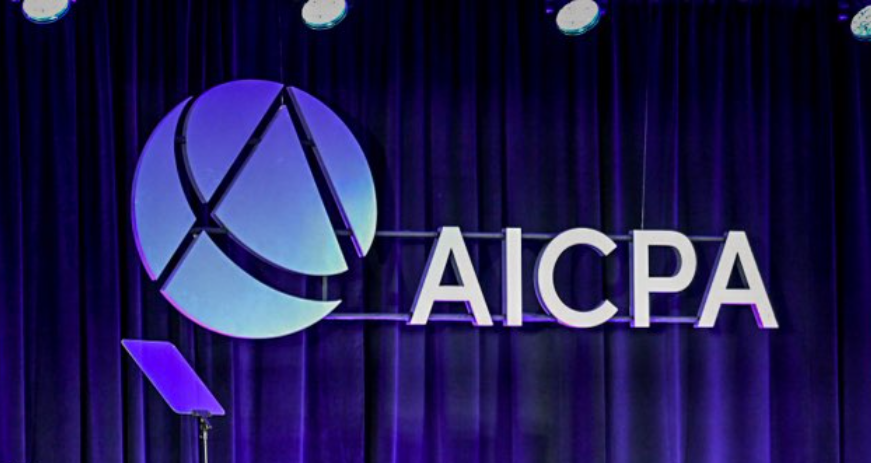AICPA News is a round-up of recent news and announcements from the American Institute of CPAs.
AICPA to Seek Feedback on Options to Update Independence Rules Governing Private Equity Investments in Accounting Firms
A task force of the American Institute of CPAs’ Professional Ethics Executive Committee (PEEC) is seeking public comment on its preliminary conclusions about revisions to independence rules related to alternative practice structures, changes driven by the increasing prevalence of private equity investment in accounting firms. The committee’s Alternative Practice Structures Task Force will ask stakeholders to weigh in on its conclusions and two interpretation options once a discussion memorandum is posted, likely later this month.
The PEEC developed its task force two years ago to look into issues raised by private equity investors in accounting. The task force is seeking comment on its preliminary conclusions and two options for a draft interpretation of independence rules – one that includes a specific private equity-related example, and another that is more general. In both instances, the draft interpretations would create the following process:
Determine which entities associated with the alternative practice structure are network firms, a term defined in the code.
Determine which individuals associated with the alternative practice structure are covered members subject to independence requirements.
Determine which additional relationships and circumstances associated with the alternative practice structure create threats to independence, and
Identify relationships and circumstances where independence would be impaired.
Apply the “Conceptual Framework for Independence” (ET sec.1.210.010) to any other relationships and circumstances that the member knows or has reason to believe may exist.
The task force will take comments through June 15 on its preliminary conclusions and the draft interpretation option stakeholders prefer regarding independence under alternative practice structures. The PEEC would use that feedback to supplement its research and select the preferred option, followed by a formal exposure draft.
For more information on the PEEC, please visit the committee’s resource page.
AICPA Requests Improvement to Tax Forms for Taxpayers Affected by Disaster
In a letter submitted to the Internal Revenue Service (IRS), the American Institute of CPAs (AICPA) requested that the IRS incorporate a checkbox and Federal Emergency Management Agency (FEMA) disaster number space into various tax returns. This action would provide an alternative method for taxpayers to ensure that they receive the appropriate disaster relief and help prevent errors that lead to incorrect notices being issued to affected taxpayers.
The AICPA recommends that the IRS add a check box and space for the FEMA declaration number to the first page of the following non-exhaustive list of tax returns:
The Form 1040, U.S. Individual Income Tax Return, series;
The Form 1065, U.S. Return of Partnership Income, series;
The Form 1065, U.S. Return of Partnership Income, series;
The Form 1120, U.S. Corporation Income Tax Return, series;
The Form 990, Return of Organization Exempt from Income Tax, series;
The Form 1041, U.S. Income Tax Return for Estates and Trusts, series;
The Form 706, United States Estate (and Generation-Skipping Transfer) Tax Return, series;
Form 709, United States Gift (and Generation-Skipping Transfer) Tax Return.
AICPA Applauds House Ways and Means Committee Approval of Endorsed Legislation
The American Institute of CPAs (AICPA) applauded the approval by the House Ways and Means Committee of two bipartisan bills that would improve transparency and fairness for taxpayers.
Among the bills supported by the AICPA are H.R. 1152, the Electronic Filing and Payment Fairness Act, and H.R. 998, the Internal Revenue Service Math and Taxpayer Help Act.
The Electronic Filing and Payment Fairness Act would apply the “mailbox rule” to electronically submitted tax returns and payments. Currently, documents and payments properly addressed and sent via the U.S. mail by the due date is considered timely, even if it is received later – this is known as the “mailbox rule.” This legislation expands that rule to include electronically submitted documents and payments that are submitted by the due date, even if the IRS processes them at a later date.
The IRS Math and Taxpayer Help Act aims to improve the transparency of the IRS in addressing and rectifying simple accounting mistakes on taxpayers’ returns. The Internal Revenue Code allows the IRS to make “math error” corrections, which are expedited adjustments to tax returns containing simple math or clerical errors.
AICPA Submits Comments for Clarification and Improvement on Form 709
In a letter submitted to the U.S. Department of the Treasury and the Internal Revenue Service (IRS), the American Institute of CPAs (AICPA) provided comments on the 2024 draft Form 709, United States Gift (and Generation-Skipping Transfer) Tax Return, and instructions.
The most recent letter contains the following suggestions:
- Allow e-filing of the Form 709.
- Relocate language regarding gift splitting and annual exclusion.
- Clarify the notice of spousal consent language.
- Revise the language on Part I, line 19 regarding gifts to third parties.
- Provide more space on Schedule A for columns (b) and (d).
- Clarify reporting gifts to section 529 plans.
- Remove “decedent” language in the Qualified Disclaimers section.
- Update the Annual Exclusion section regarding gifts in trust.
- Clarify GST tax implications for gifts to direct skip trusts.
- Update the Consent of Spouse section regarding the timing of consent.
- Provide a specific form or at least sample allocation/election statements to include with Form 709 filings for GST allocations/elections under section 2632(c).
- Remove the requirement to provide a trust summary or attach the trust agreement to the Form 709, if the trust summary or trust agreement was previously included or attached, in order to start the running of the statute of limitations for adequate disclosure.
AICPA Highlights Key Concerns for Individuals to Keep in Mind During 2024 Tax Season
As taxpayers navigate the challenges of tax season, the American Institute of CPAs (AICPA) is identifying areas individual filers to be aware of for this filing season:
Tax bracket changes: The IRS announced adjustments for more than 60 tax provisions, including the tax rate schedule. These adjustments mean that the income limits for each tax bracket have increased, which could result in a lower tax bill for some taxpayers where their income has remained the same.
Standard deduction increases: The standard deduction amount for 2024 has increased for all taxpayers Single or married filing separately: $14,600; married filing jointly or qualifying surviving spouse – $29,200; head of household – $21,900.
Form 1099-K: This is a form for the taxpayer that reports payments received for goods or services during the year from credit, debit or stored value cards such as gift cards (payment cards), or payment apps and online marketplaces, also referred to as third party settlement organizations (i.e. PayPal, Venmo, Zelle, Etsy, etc.). The IRS has delayed the scheduled reduction in the reporting threshold of Form 1099-K and reporting will be required for payments totaling greater than $5,000 during 2024. This threshold will lower to more than $2,500 in 2025 and more than $600 in 2026 and subsequent years. Also new for 2024, if you received a Form 1099-K in error or that shows payments for personal items sold at a loss, you can now enter it in a new box placed at the top of Schedule 1.
Electric vehicle purchase: This clean vehicle credit of up to $7,500 is available for qualified new vehicles. There are specific qualifications that must be met and information that must be obtained from the seller in order to qualify, including final assembly location, manufacturer’s suggested retail price, battery component and critical minerals sourcing. Buyers may also be able to transfer their clean vehicle credit to the dealer and receive the amount of the credit as a discount on the vehicle.
Used electric vehicle purchase: Used electric vehicles may be eligible for a tax credit up to the lesser value, either $4,000 or 30 percent of the vehicle sale price. Like the new clean vehicle credit, there are requirements that must be met to qualify for the credit.
Retirement Plan Contributions: The maximum contribution limits for 401K plans increased to $23,000 for 2024 ($30,500 if you are 50 and over). The maximum contribution limit for traditional and Roth IRAs increased to $7,000 ($7,500 if you are 50 and over).
Disaster Relief & Recovery If the IRS determines you to be affected by a federally-declared disaster, a significant fire or a terroristic or military action, you may have up to one year after the due date of your return to file and pay taxes, depending on the deadline specified by the IRS. Additional information from the IRS can be found here. Affected taxpayers should also be aware of scammers trying to target taxpayers by offering to “help” you file casualty loss claims and promising big refunds.
Charitable Donations Many taxpayers chose to make charitable donations to aid victims of multiple natural disasters this year. You can deduct up to 60 percent of your Adjusted Gross Income (AGI) if you gave cash to standard public charities It’s also important to note that contributing to a “Go Fund Me” or some other non-public entity is not deductible, irrespective of the purpose that the collected funds will be used for. If you donated appreciated assets (stocks, bonds, real estate, etc.), the maximum deduction for tax year 2024 is 30 percent of your AGI. It is important to retain proper documentation from the charity supporting the contribution, whether it is in cash or property. For a cash contribution of $250 or more, you should obtain written acknowledgement from the charity which shows the name of the organization, the amount and the date of the contribution. For a non-cash contribution, you should also obtain a detailed description of the property.
Other Scams In addition to scams related to natural disasters, taxpayers should be aware that fraudsters may try to impersonate IRS agents using a variety of methods, especially this time of year. The IRS states that they will NOT initiate contact with taxpayers by email, text message or through social media platforms to request personal or financial information.
AICPA Asks for Updated Language in Draft Publication 547 to Help Taxpayers Eligible for Disaster Tax Relief
In a letter submitted to the Internal Revenue Service (IRS), the American Institute of CPAs (AICPA) requested that the Department of the Treasury and the IRS consider updating Draft Publication 547, to ensure that the publication provides clear direction to taxpayers regarding the disasters that are covered by the Federal Disaster Tax Relief Act of 2023 (FDTRA). Currently, there is a lack of clarity in the draft publication that may lead taxpayers or tax practitioners to misinterpret the criteria for qualified disaster losses.
The AICPA recommends the following:
Amend Draft Publication 547 to include the following information:
A major disaster that (i) was declared by the President during the period between January 1, 2020, and February 10, 2025, (ii) has an incident period that began on or after December 28, 2019, and on or before December 12, 2024, and (iii) has an incident period that ended no later than January 11, 2025.
Provide in the final version of Publication 547:
A link to the IRS’s disaster relief website that would provide a comprehensive list of federally declared disasters to which the FDTRA is applicable.
A link to Disasters and Other Declarations | FEMA.gov to verify the disasters that constitute federally declared disasters and qualify for special treatment.
Thanks for reading CPA Practice Advisor!
Subscribe Already registered? Log In
Need more information? Read the FAQs
Tags: Accounting





